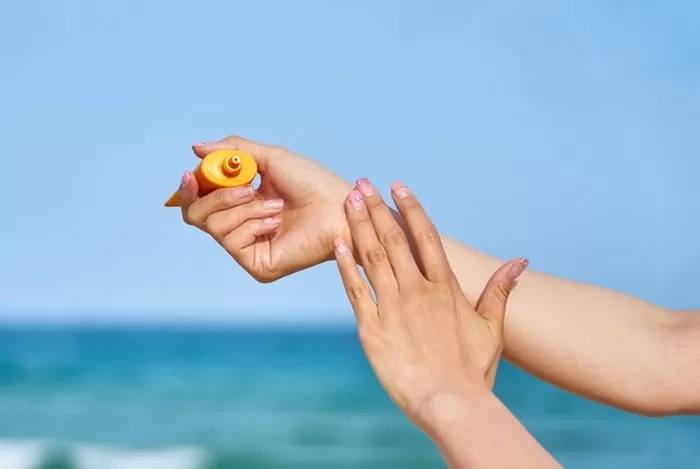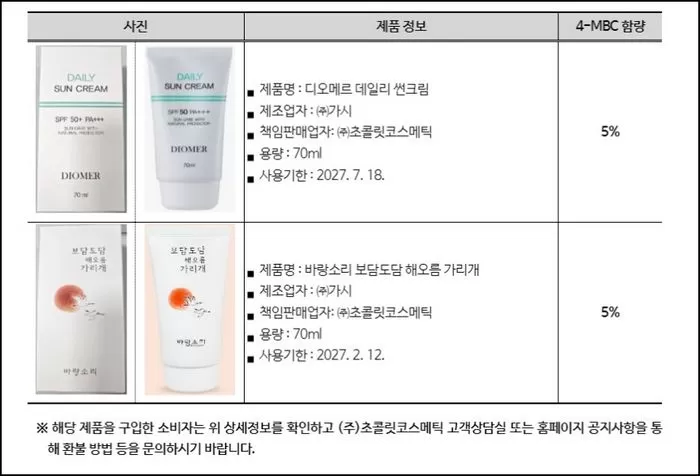**Sales Suspension of 2 Sunscreen Products Containing Excess Endocrine Disruptors**
As the weather warms up, the demand for sunscreens that block ultraviolet rays is also increasing.
However, recent investigations have revealed that two types of sunscreens sold in the market contain endocrine-disrupting substances in excess of the allowable limits, raising concerns.
On the 16th, the Korean Consumer Agency announced that, as part of a survey of the ingredients in 40 types of sunscreens, it identified two products with levels of '4-Methylbenzylidene Camphor' (4-MBC) exceeding the allowable limit of 4%.

The products in question are 'Diomer Daily Sunscreen' and 'Barangsori Bodamdodam Sunrise遮盖,' both measuring a 4-MBC content of 5%.
'4-MBC' is an organic UV filter used to block ultraviolet rays, but when absorbed in large amounts in the body, it can act as an endocrine disruptor, potentially affecting hormones.
**Sales Suspension and Refund Measures for Affected Products**
The Korean Consumer Agency emphasized the immediate cessation of the use of these products.

In response, the responsible distributor, Chocolate Cosmetic, has complied with the Consumer Agency's corrective recommendations by halting the sale of the products and disposing of all inventory.
Additionally, they have decided to issue refunds for the products that have already been sold.
Consumers can contact the Chocolate Cosmetic customer service center to request refunds, and in cases of harm, they can apply for consultation through the 1372 Consumer Consultation Center or Consumer 24.

Meanwhile, the European Union (EU) has recognized the risks associated with 4-MBC and plans to prohibit its use in cosmetics starting in May, with a complete ban on the distribution of products containing 4-MBC set for next May. This action reflects international concerns regarding the safety of this ingredient.
Experts advise consumers to check the ingredient lists when purchasing sunscreens and to avoid products containing controversial substances like 4-MBC whenever possible.
Moreover, the Ministry of Food and Drug Safety is reportedly strengthening the safety testing of cosmetic ingredients and reviewing the establishment of standards that reflect international regulatory trends.
Image source: Reference materials for understanding the article / gettyimagesbank, Korean Consumer Agency


![[Breaking News] Lee Jae-myung wins the Yeongnam primary with 90.81%… Overwhelming first place in Chungcheong and Yeongnam](https://wordkorean.com/wp-content/uploads/2025/04/thumbnail-784.webp)